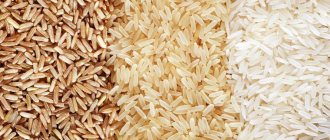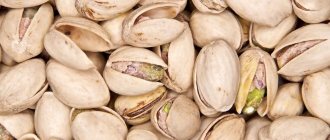Candidate of Medical Sciences, leading researcher at the Federal Research Center for Nutrition and Biotechnology Svetlana Derbeneva says :
— Once upon a time, the formula of proteins-fats-carbohydrates (BJU) was considered ideal - 1:1:4. Today, experts have come to the conclusion that there is no universal ratio of proteins, carbohydrates and fats in the diet that is suitable for everyone.
The BJU formula must be constantly adjusted depending on the age, health status and needs of the person, as well as his activity.
The only constant requirement is that all three components must be present in the diet. Refusal of one of them is fraught with serious health problems.
Article on the topic
In facts and figures: protein deficiency in the diet disrupts vitamin metabolism
Bad or good?
Dividing proteins into harmful and beneficial is not entirely correct. Protein can be definitely harmful only in case of individual intolerance. Since it is proteins that trigger the cascade of allergic reactions in the body, even the most beneficial protein will be harmful to the person in whom it causes allergies. In other cases, it is more correct to talk about proteins that are more or less useful.
The value of a protein determines its composition. All proteins (and there are more than a thousand of them) consist of a long chain of amino acids, which are divided into essential (entered into the body only with food) and non-essential (they can be synthesized in the body). The more essential amino acids a protein contains, the more valuable it is.
The maximum amount of essential amino acids is contained in milk, egg, meat, fish and soy proteins. Vegetable proteins are considered less valuable. However, they have another advantage. Animal proteins enter the body in combination with not all healthy animal fat. There is no fat in plant foods. Therefore, nutritionists believe that a third of all proteins in the diet should be of plant origin.
It is believed that an adult whose work does not require serious physical activity needs 1 g of protein per 1 kg of body weight per day. In case of kidney diseases accompanied by impaired kidney function, the protein intake rate is reduced to 0.6-0.8 g per kg of body weight per day. Professional athletes have a higher protein consumption rate - 1.3-1.6 g per kg of body weight per day and even more, depending on the type of sport and sports period.
It is not advisable to exceed this norm.
Protein as medicine. What products will help cure the flu faster Read more
Vitamin D deficiency
Humans get vitamin D from exposure to sunlight or through food. If a person does not get enough vitamin D, they may become deficient. Classic symptoms of vitamin D deficiency are bone pain and muscle weakness.
Some people are more at risk of developing vitamin D deficiency, including:
- infants, as human milk contains limited amounts of vitamin D
- older people who do not absorb vitamin D
- people with dark skin who absorb less vitamin D from sunlight
- people who stay indoors for a long time
- obese people, as fat cells bind to vitamin D and prevent it from entering the bloodstream
Certain health conditions and medications can also make it difficult to absorb vitamin D, including:
- kidney diseases
- liver diseases
- some types of cancer
- Crohn's disease
- celiac disease
- chronic inflammatory diseases
- hyperparathyroidism
- anticonvulsants
- drugs against HIV/AIDS
- bypass surgery
Saturated or unsaturated?
Healthy unsaturated fats (found in olive oil, nuts, avocados and fish), on the other hand, protect the heart by lowering bad cholesterol and increasing good cholesterol. The most valuable component of unsaturated fats is omega-3 and omega-6 unsaturated fatty acids. The record holders for their content are fish and olive oil. They resist the formation of blood clots and cholesterol plaques, improve brain function, strengthen memory and immunity. According to some studies, consuming these acids can reduce the risk of heart disease by 35%, and the chance of dying from a heart attack by 50%. The norms for fat consumption for a person happy with his figure are 0.8-1 g per 1 kg of body weight per day.
By the way!
A lack of fat immediately affects your appearance - the skin wrinkles and dries out, hair becomes lifeless, and nails become brittle. In addition, fats supply the body with energy, regulate heat exchange and promote the absorption of many other useful substances. Provided that the diet contains the right fats. Harmful fats include saturated fats, which are found in full-fat dairy products, meat, processed meats and fast food. They provoke the deposition of cholesterol plaques on the walls of blood vessels and, as a result, heart disease.
Kills the liver, destroys the brain. What are the dangers of a high-fat diet? Read more
Carbohydrates
Everyone knows that carbohydrates are the enemies of your figure. Therefore, as soon as there is an urgent need to lose weight, the first step is usually to give up carbohydrates. And they make a serious mistake. With a prolonged lack of carbohydrates, the body cannot completely burn fat, which is why it forms metabolic byproducts - ketones. Accumulating in the blood and urine, they cause an unpleasant state - ketosis, the symptoms of which are lethargy, fatigue, irritability, and decreased performance. Therefore, a carbohydrate-free diet is considered one of the hardest for the body.
It is no coincidence that carbohydrates are included in the triad of essential nutritional components: they provide the body with energy, nourish the brain and are responsible for the feeling of fullness. The main thing is to eat the right carbohydrates.
These organic compounds have different structures.
Article on the topic
Buns as opiates. How do carbohydrates affect our brain?
Simple or complex?
Simple (easily digestible) carbohydrates, which are also called fast carbohydrates for their ability to instantly increase blood sugar levels. The body can extinguish this surge in only one way - by turning sugar into fat deposits. In addition, to process large amounts of sugar, large amounts of insulin are required. Eating fast carbohydrates wears out the pancreas, so it is better to minimize their amount in the diet.
Another thing is complex carbohydrates, which consist of hundreds of different elements. They release energy gradually, providing long-lasting saturation. Such carbohydrates per day must be consumed at least 50-55% of the total calories - 3 g per kilogram of weight. And if a person is engaged in physical labor or is actively involved in sports, then the rate of carbohydrate consumption should be increased at the rate of 5-6 g per kilogram of weight.
Complex carbohydrates are found in vegetables, fruits, cereals and whole grain bread. Fast carbohydrates - baked goods and sweets.
How not to eat harmful things? Learning to choose healthy products Read more
Natural Sources of Vitamin C
Ascorbic acid is mainly found in foods of plant origin. They need to be included in your diet to avoid hypovitaminosis. TOP 7 products with the highest concentration of the substance (table):
| Name | Amount of nutrient, mg per 100 g of product |
| Dried rose hips | Up to 1500 |
| Black currant | 250 |
| Red hot pepper | 250 |
| bell pepper | 120 |
| Cauliflower | 75 |
| Strawberries | 65 |
| Lemon | 50 |
Although fresh fruits contain up to 250 mg of the nutrient per 100 g, it is difficult to get your entire daily dose of vitamin C from food sources. This is due to the rapid destruction of acid under the influence of oxygen, ultraviolet rays, and slow heating. To get the maximum benefit from the products you need to follow some rules:
- when cooking vegetables, they must be thrown into already boiled water to avoid prolonged heating;
- Place lemon slices into slightly cooled tea;
- It is advisable to eat sliced fruit immediately; do not leave fruit slices exposed to air.
The daily intake of ascorbic acid varies among people of different ages and gender; large doses are indicated in the treatment of hypovitaminosis and some chronic diseases. To benefit from taking vitamin C supplements, you must strictly adhere to the dosages prescribed by your doctor. You should not change the number of tablets or frequency of administration on your own, as this may cause unwanted reactions.
How do you replenish ascorbic acid reserves in the body? Write in the comments.











